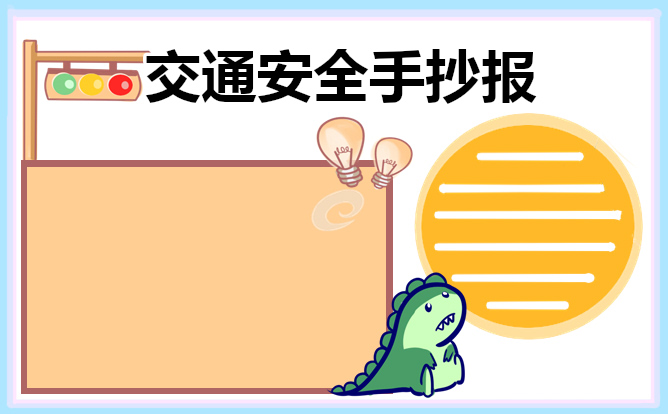新概念英语第一册语法解析
小编今天给大家整理新概念英语第一册语法解析,一起来学习吧,下面小编就和大家分享,来欣赏一下吧。
新概念英语第一册:语法解析how的特殊疑问句
How的特殊疑问句
Hello, everyone. This is Eric's English Studio.
今天我们看一看How--的这几个 特殊疑问句
How soon .... ?
how soon,意为“还要多久”,是表示从某个时间到这个动作开始,或者结束要发生多长的时间,通常是用在一般将来时态的句子里,回答一般都是"in+一段时间“
—How soon can you finish the work? 还要多久你能完成这项工作?
—In half an hour. 半小时后.
How long .... ?
how long意为“多久、多长时间”,主要是对一段时间进行提问, 答语通常是(for)three days/weeks/months等时间段,它可用于各种时态.
How long do you stay in Beijing every year? 每年你在北京住多久?
How long have they lived here? 他们住在这里有多久了?
—How long has Sponge Bob lived in this orange pineapple ?
海绵宝宝在这个橘黄色菠萝里面生活了多久?
—About two weeks. 约两周.
how long还可以意为“某个物品多长”,
—How long is the ruler ? 这把尺子多长?
—About 15 cm long. 大概15里面长。
How far ...?
how far意为“多远的距离,什么样的程度”,一般用来提问距离是多少,答语通常是it is +距离单位 ,等
-How far is it from your company?
- It's 6 kilometres.
How often ...?
how often意为“多久……次、是否经常”,用来提问在某一特定的时间进行某个动作的次数,答语通常是always,usually,often,sometimes,once/twice a day/month等.
—How often do you get to school very early? 你多久早到校一次?
—Usually. 通常.
—How often do Sopnge Bob and Patrick watch TV together ?
海绵宝宝和派大星多久一起看电视 ?
—Once a month. 每月一次.
How many times ...?
how mant times意为“多少次”,通常是来问次数的,或者是一个时间段内的频率,回答一般是.x times a year/month/
three days ....
—How mang times do they come to the park a week ? 他们一般一周来多少次公园?
— Three times a week.
练习
1.— _______ did the meeting last?—About half an hour.
A.How soon B.How long C.How far D.How much
2.— _______ will Ezhou-Huanggang Bridge be finished?—In a few months.
A.How soon B.How long C.How often D.How far
3.— ________ will it take you to get to the post office?
—About half an hour.
A.How old B.How long C.How soon D.How often
4.— _________ do you write to your mother?—Once a month.
A.How many times B.What time is it C.How soon D.How often
5.— _______ a year does your school have sports meetings?—Twice a year.
A.How often B.How soon C.How long D.How many times
1.B 2.A 3.B 4.D 5.A
新概念英语第一册:语法解析Be going to 结构
Be going to 结构 表示打算,准备,计划做某事
I am going to make a bookcase.
They are going to paint it.
The father is going to give the bookcase to his daughter.
Are you going to make a bookcase?
Are they going to paint it?
Is the father going to give the bookcase to his daughter?
I am not going to make a bookcase.
They are going to paint it.
The father is not going to give the bookcase to his daughter.
Yes, I am. No, I am not.
Yes, they are. No, they are not.
Yes, he is. No, he is not.
What are you going to do?
What are they going to do?
What is the father going to do?
新概念英语第一册:语法解析There be 句型
There be 句型 表示哪里有什么东西(某处有某物)
There is+单数名词+表示场所的词(一般为介词词组)
There is a book in this room.
There is a pen on the table
There are+复数名词+表示场所的词(一般为介词词组)
There are two pens on the table.
There are three schools there.
Is there a book in this room?
Are there two pens on the table?
There is not a book in this room.
There are not two pens on the table.
Yes, there is. No, there is not.
Yes, there are. No, there are not.
新概念英语第一册语法解析:陈述句的五种基本句型
在英语中,用来陈述一件事或表示一种看法的句子叫陈述句。这与汉语陈述句的概念一模一样。
陈述句的五种基本句型
(1) 主语+连系动词+表语
I am a student. 我在学生。
They feel happy. 他们感到高兴。
(2) 主语+谓语(不及物动词)
The sun rises in the east. 太阳从东方升起。
The bell has rung. 铃声响过了。
(3) 主语+谓语(及物动词)+宾语
He is doing morning exercises. 他在做早操。
I like English. 我喜欢英语。
(4) 主语+谓语(及物动词)+间接宾语+直接宾语
My father bought me a MP4. 我父亲给我买了一个MP4。
He asked me a question. 他问了我一个问题。
(5) 主语+谓语(及物动词)+宾语+宾语补足语
She found this question easy. 她发现这题容易。
We saw him swimming in the river. 我们看见他正在河里游泳。
新概念英语第一册语法解析:一般过去时
一般过去时
表示过去发生的动作或事件,常和表示过去的时间状语连用,如yesterday, last night, the day before yesterday, 3 days ago...
含有be动词的句子,将be动词变为过去式。am, is的过去式为was, are的过去式为were:
I was at the butcher's.
You were a student a year ago.
The teacher was very beautiful ten years ago.
Were you at the butcher's?
Were you a student a year ago?
Was the teacher very beautiful ten years ago?
I was not at the butcher's.
You were not a student a year ago.
The teacher was not very beautiful ten years ago.
Yes, I was. / No, I was not.
Yes, you were. / No, you were not.
Yes, he/she was. / No, he/she was not.
What did you do?(必背)
不含有be动词的句子,将动词变为过去式:
I finished my homework yesterday.
The boy went to a restaurant.
The Sawyers lived at King Street a year ago.
Did you finish your homework yesterday?
Did the boy go to a restaurant?
Did the Sawyers live at King Street a year ago?
I did not finish my homework yesterday.
The boy did not go to a restaurant.
The Sawyers did not live at King Street a year ago.
Yes, I did. / No, I didn't.
Yes, he did. / No, he didn't.
Yes, they did. / No, they did not.





